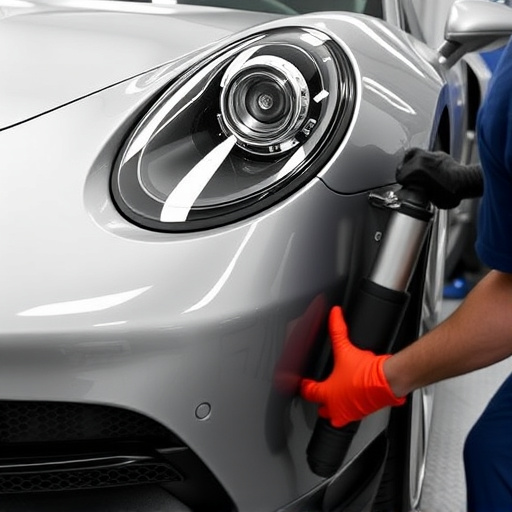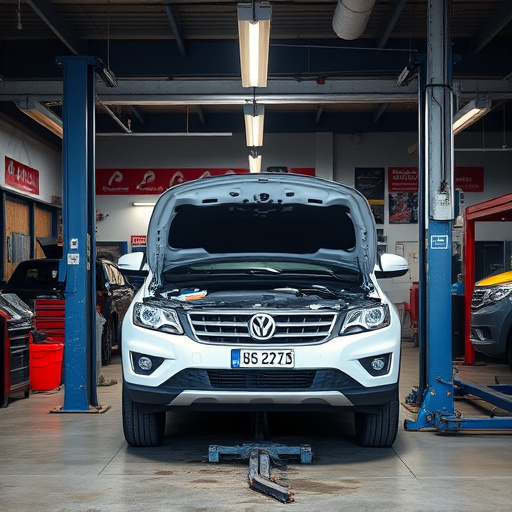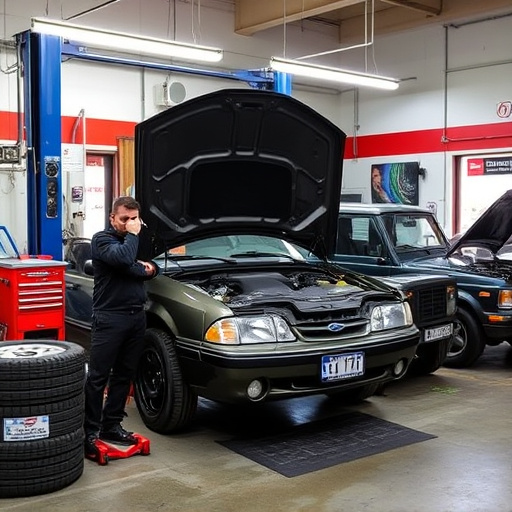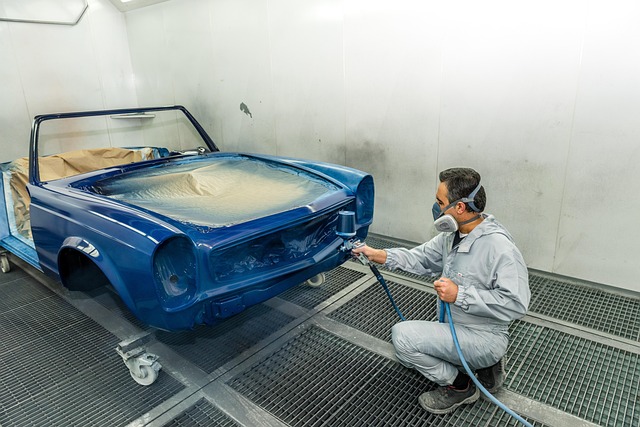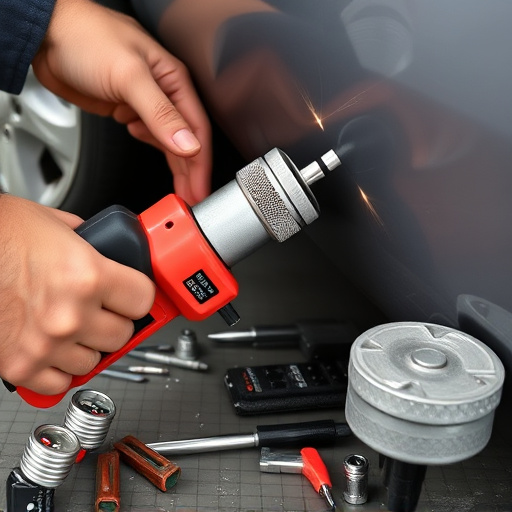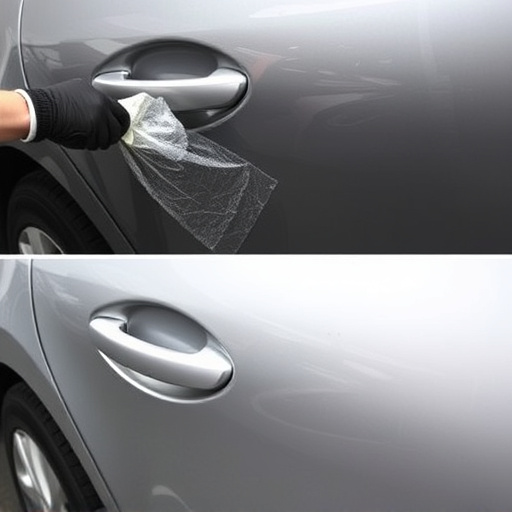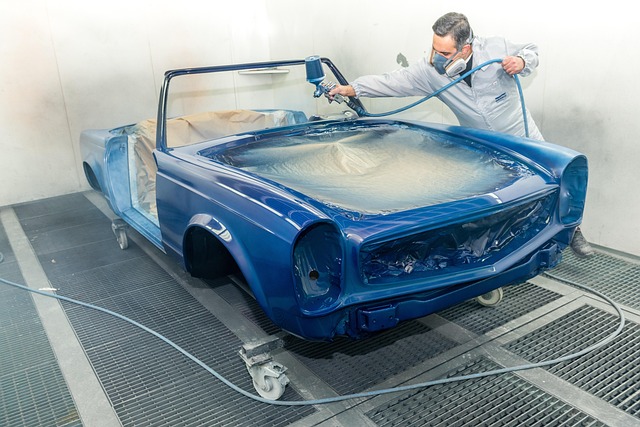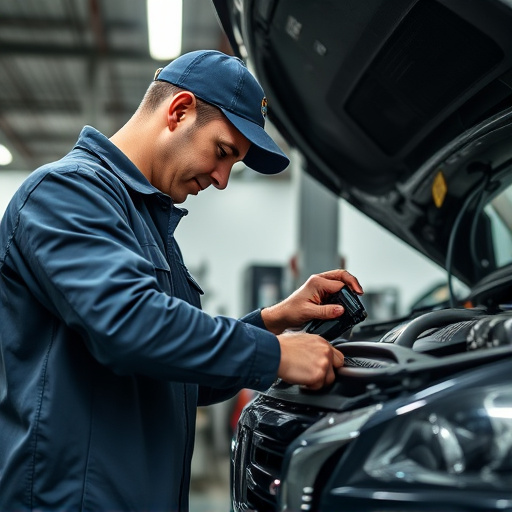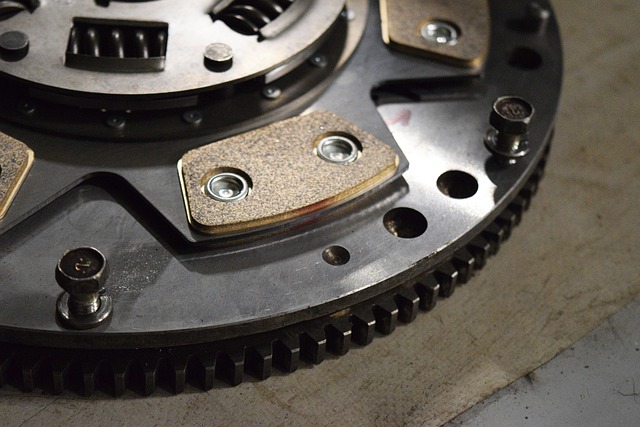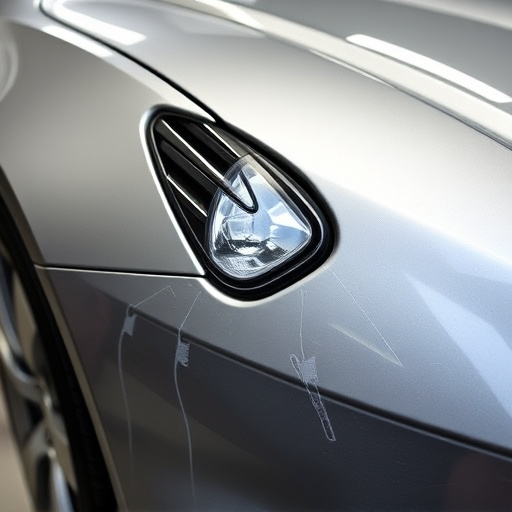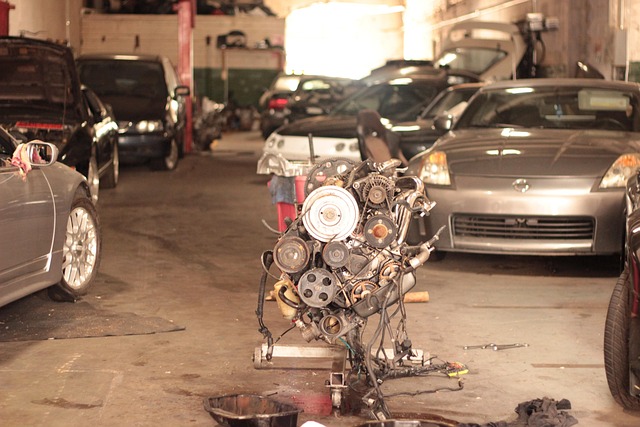Leading auto accident repair facilities embrace sustainable materials management, minimizing waste and reducing their carbon footprint with eco-friendly practices like using recycled and biodegradable materials. They implement innovative technologies for efficient recycling and resource stewardship, enhancing their industry reputation as environmentally conscious leaders. These shops prioritize cost-effective waste reduction strategies, employ advanced techniques for cleaner work environments, and adopt eco-conscious practices like bio-based paints and water recycling systems to protect the environment and attract eco-conscious consumers.
In the realm of auto accident repair, adopting sustainable practices is not just an ethical choice but a strategic one. This article explores the green initiatives that are transforming traditional repair shops into eco-friendly hubs. We delve into three key areas: sustainable materials management, efficient waste reduction strategies, and eco-conscious bodywork and painting techniques. By implementing these practices, auto accident repair shops can minimize their environmental impact while contributing to a greener future.
- Sustainable Materials Management in Auto Shops
- Efficient Waste Reduction Strategies for Repairs
- Eco-Friendly Practices for Bodywork and Painting
Sustainable Materials Management in Auto Shops

In the realm of auto accident repair, sustainable materials management is a game-changer that sets apart forward-thinking shops like top-tier Mercedes Benz repair facilities. These establishments understand that the environmental impact of their operations is not just a consideration but a responsibility. By prioritizing eco-friendly practices, they strive to minimize waste and reduce the carbon footprint associated with auto collision centers. One key aspect is the adoption of recycled and biodegradable materials whenever possible, ensuring that every component used in repairs contributes positively to the environment.
Auto repair shops can significantly reduce their environmental impact by implementing efficient recycling programs and adopting innovative technologies for material processing. For instance, using sustainable alternatives to traditional automotive fluids or implementing systems that capture and repurify gases released during repairs are strategies that not only benefit the planet but also enhance the shop’s reputation as a responsible steward of resources, especially when compared to less eco-conscious auto repair shops.
Efficient Waste Reduction Strategies for Repairs
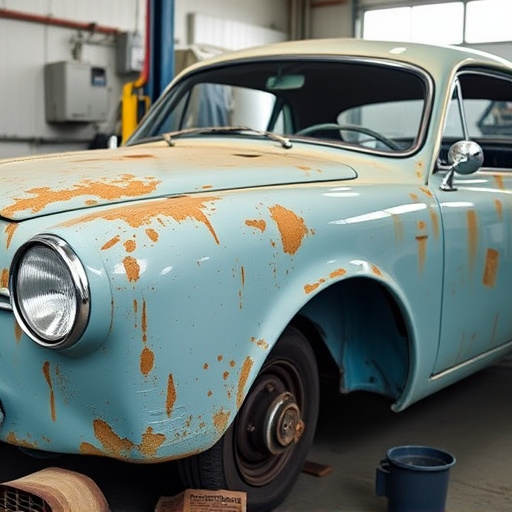
In the realm of auto accident repair, efficient waste reduction strategies are not just eco-friendly practices but also essential for cost-effective operations and maintaining a clean work environment. Top-tier vehicle body shops prioritize minimizing debris and maximizing resource utilization. This includes implementing innovative methods to handle scrap materials, such as recycling metal components and repurposing plastic parts from damaged vehicles. By adopting these sustainable approaches, fleet repair services can significantly reduce their environmental footprint while potentially lowering operational costs.
Effective waste management goes beyond merely sorting recyclables. For instance, in scratch repair processes, skilled technicians employ cutting-edge techniques to restore damaged surfaces without generating excessive dust or debris. This not only ensures a cleaner workspace but also reduces the need for frequent cleaning and maintenance, ultimately streamlining the repair process. Such eco-conscious practices contribute to a healthier work environment for employees and reflect the shop’s commitment to responsible auto accident repair.
Eco-Friendly Practices for Bodywork and Painting

In the realm of auto accident repair, environmental considerations have become paramount, pushing the industry towards eco-friendly practices for bodywork and painting. Collision repair shops are increasingly adopting sustainable methods to minimize the ecological impact of vehicle body repairs. These include using bio-based or water-borne paints that contain fewer volatile organic compounds (VOCs), thereby reducing greenhouse gas emissions and indoor air pollution. Furthermore, recycled content materials like recycled steel and plastic components are being integrated into the repair process, contributing to a circular economy by diverting waste from landfills.
Automotive restoration specialists also emphasize efficient energy use, employing advanced technologies for heating, cooling, and lighting to reduce overall energy consumption. Additionally, many collision repair shops have embraced water recycling systems to reuse and purify washing water, significantly cutting down on fresh water usage. These eco-friendly practices not only benefit the environment but also enhance the image of auto accident repair businesses, appealing to environmentally conscious consumers.
Auto accident repair shops can significantly reduce their environmental impact by adopting sustainable practices. By implementing efficient waste reduction strategies, utilizing eco-friendly materials, and embracing green techniques for bodywork and painting, these shops contribute to a greener future. Integrating such practices not only benefits the environment but also enhances their reputation as responsible business leaders in the auto repair industry. Embracing sustainability is a win-win for both the planet and the thriving auto accident repair community.

